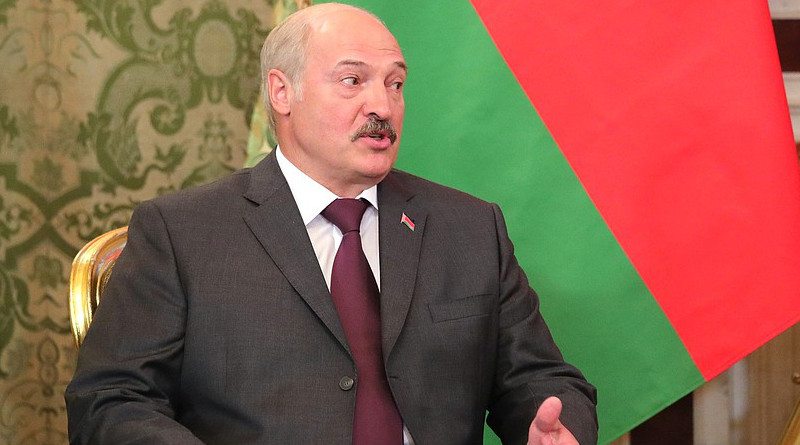Belarusian Draft Constitutional Amendments Would Give Lukashenka Immunity
By RFE RL
(RFE/RL) — Belarus’s authoritarian leader has proposed long-awaited constitutional amendments that include his immunity from any potential prosecution and a redistribution of power to the national assembly that some analysts say he eventually plans to head.
Alyaksandr Lukashenka,67, has said the changes, outlined for the first time in a report by the state BelTA news agency on December 27, will be voted on in a referendum in February 2022.
Lukashenka has proposed the changes amid domestic and international backlash over the violent crackdown on the opposition following the disputed August 2020 presidential election that he claims he won. His political opponents have demanded new presidential elections instead.
The amendments prohibit anyone who temporarily left the country in the last 20 years from becoming president, a change that appears to be aimed directly at opposition members, many of whom were forced to flee to avoid political persecution.
They also strengthen the role of the All-Belarus People’s Assembly, a periodic gathering of loyalists that currently has no governing status under the law. The assembly would approve the country’s foreign and economic policy and have the power to impeach the president, who can serve no more than two five-year terms.
Lukashenka’s opponents called the attempt to rewrite the constitution a sham exercise to help him cling to power as the West bears down on him with economic sanctions for his sometimes violent crackdown on civil society in the wake of a wave of dissent following the disputed election that handed him a sixth consecutive term.
“The regime’s draft constitution doesn’t give Belarusians a real choice. It will let the dictator secure power, control the situation through the artificial All-Belarusian People’s Assembly, and avoid prosecution. A new presidential election is the only solution to the crisis,” opposition leader Svyatlana Tsikhanouskaya said in a tweet.
Lukashenka could run again, as the two-term limit would only apply going forward.
The strongman has suggested in the past that he would be willing to step down only after changes to the constitution were made, but in recent months he stopped mentioning such a possibility.
Tadeusz Giczan, a non-fellow resident at the Center for European Policy Analysis and a Belarusian journalist formerly with Nexta-TV, said Lukashenka would “most likely” take the position of chairman of the assembly.
Lukashenka would then be able to ouster the president should the latter become a threat, Giczan said.
Nearly Three-Decade Rule
Lukashenka, a former state farm director, has run Belarus with an iron hand since winning presidential elections in 1994, just three years after the Soviet Union’s collapse.
The country has never held free and fair elections under his rule, according to Western observers.
He has persecuted the opposition over the years, driving some out of the country and putting others in prison, leading some Western officials to dub him “Europe’s last dictator.”
Syarhey Tsikhanouski, the blogger who sought to challenge Lukashenka in 2020, was sentenced to 18 years in jail earlier this month on charges of organizing riots. Human rights organizations called the trial a sham.
He is just one of more than 900 political prisoners in the country.
Tsikhanouskaya, his wife, whom many claim won the 2020 election, left for neighboring Lithuania with their children to avoid a similar fate.
Belarusians have grown frustrated with Lukashenka’s rule over the decades. The economy remains largely unreformed and heavily dependent on cheap energy from Russia, while salaries and living conditions remain low compared with countries in Central Europe.
Tens of thousands of Belarusians took to the streets for months following the 2020 presidential election to peacefully protest Lukashenka’s claim of victory.
They were the the largest anti-government demonstrations in Belarus since the early 1990s.
The authoritarian ruler responded with a brutal suppression of his own people as police used force to detain thousands. There also have been credible reports of torture and ill-treatment by security forces and several people have died during the crackdown.
The European Union, the United States, and several countries have since refused to recognize Lukashenka as the legitimate leader of Belarus and called for new elections.
They have also imposed several rounds of sanctions on Lukashenka and other senior officials in response to the violent crackdown.

